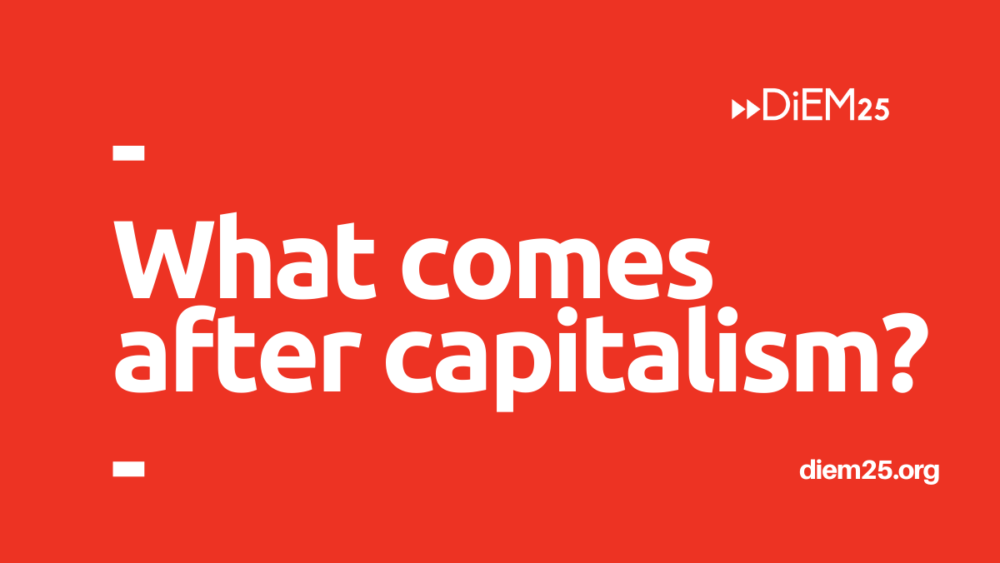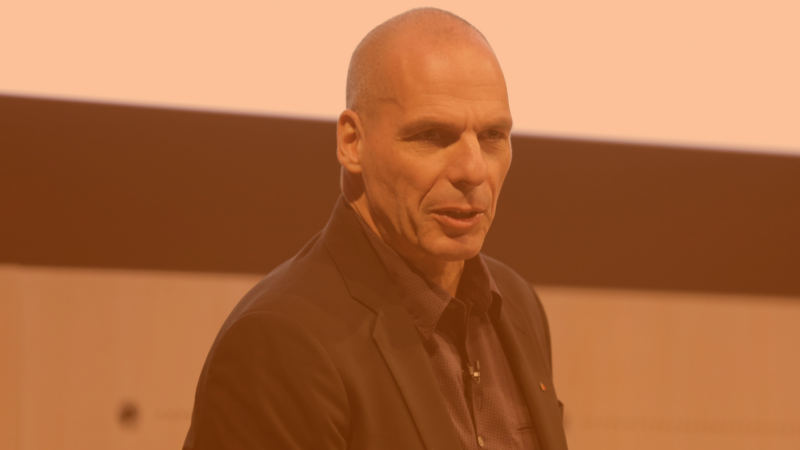The way in which monopoly capitalism evolved to create socialism for the bankers and the very rich — and the arena of the unfettered markets for the many.
“The notion of competitive capitalism that Adam Smith was referring to died around 1870-1880. (…) The idea of the brewer, the baker and the butcher goes and is replaced by General Electric, Ford, today by Google, Facebook, Amazon and so on. That is not competitive capitalism, it’s a market of monopolists.”
“Our job is to stabilize capitalism and to use its stabilization as a foundation on which to build an alternative to capitalism. (…) Then we can start to have the second conversation: what come after capitalism?”
What will postcapitalism look like?
“We all produce value together, collectively, but then some very smart and powerful privateers tax it, and they become the oligarchs.”
“What we are proposing is very simple: every company should contribute 10% of their shares to a welfare fund that collects dividends, and the dividends are then divided to every citizen.”
Video produced by Sustainable Human.
Do you want to be informed of DiEM25's actions? Sign up here










